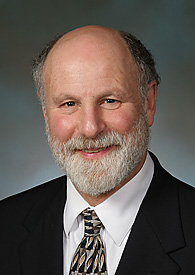Feature:
Washington
Legislature
to
Consider
Bill
to
Examine
Alternatives
to
Prohibition
12/9/05
A coalition of professional and civic groups led by the King County Bar Association and its Drug Policy Project are planning to resume their campaign for a potentially paradigm-breaking bill directing the state of Washington to create a high-profile commission to study alternatives to drug prohibition. First introduced last year by Senate Judiciary Committee Chair Adam Kline, SB6055, will be reintroduced for the legislature's 2006 short session next month.
(a) Regulation of manufacturing, transportation, storage, purity, and product safety; (b) Limitations on sale and other transfer, labeling, pricing, and taxation; (c) Requirements of medical supervision; and (d) Limits on advertising." The 24-member commission would include representatives from the Washington state addiction programs, pharmacy, psychiatric, psychological, and public health associations, the Washington Academy of Family Physicians, the state PTA, the state boards of health and pharmacy, and four members of the legislature. Law enforcement would get only three seats (the Washington Association of Sheriffs and Police Chiefs, the Washington Council of Police and Sheriffs, and the Washington Association of Prosecuting Attorneys), while the state associations of cities, counties, and business also get representation. The last two seats would be filled by representatives of the Washington Defender Association and the state bar association. The bill is currently being tweaked to try to satisfy grumblings from prosecutors, said KCBA Drug Policy Director Roger Goodman. "I just got out of a meeting about setting up a meeting with legislators and other stakeholders so we can sit down and figure this out," he told DRCNet. "Prosecutors have had a sort of knee-jerk response that we've already decided to legalize drugs, but what we're asking for is the creation of a commission to look at regulatory alternatives," he said. "There is language in the bill about rendering illegal markets unprofitable, and that's been a problem for them," he said without a hint of irony. "We're willing to talk about the language," Goodman continued. "We don't want to try to give too much direction; we just want to get people around the table and then we have an idea where it will go." That's because Goodman and the KCBA have been laying the groundwork for the past five years. KCBA's Drug Policy Project issued a major report on the failures of prohibition and alternatives to it in 2001 and a comprehensive new report hitting the same theme this year. The group has also carefully crafted a network of "grasstops," or major players and opinion leaders, including most of the state's health professional associations, and the Seattle League of Women Voters. This year, the Washington State Bar Association and the Washington State Medical Association both passed a KCBA resolution calling on the state to create the commission on alternatives to prohibition. "This is an important new development," said Goodman. "With the state bar and medical associations endorsing the resolution, we have something we didn't have last year: Now we have their lobbyists. We've finally got doctors and lawyers going to Olympia together on this, and that should help." Goodman was guardedly optimistic the bill would make progress, but remained doubtful of passage next year. "It is a short session next year, mainly supplemental budget requests, so I'm not sure we can push it through, but we are continuing to look for cosponsors and we are reaching across the aisle for them," he said. In the mean time, there are other battles to be waged in the short session. "We're trying to get $3 million in money for drug sentencing alternatives," he explained. "The legislature passed a bill for treatment as an alternative to prison, but there's no money. And we have to work against continuing efforts to crank up meth penalties. We're for family support and treatment of folks suffering from meth abuse, but not proposals like snatching kids from their families. The meth train has already left the station, but maybe it's not too late to switch tracks." The KCBA Drug Policy Project and its allies continue to work to broaden support for the bill and the drug reform agenda. "We have 10 trained speakers in our speakers' bureau who can go out and talk about our findings and recommendations to groups like the local chambers of commerce, Rotary Clubs, PTAs, church groups, and the like," said Goodman. "We've had a lot of media coverage, and of course, the conference helped. We are also involved in some behind-the-scenes meetings with judges, prosecutors, and city and county councils. It's very important to get the opinion leaders if you want to move forward," he said. If not next year, the year after or the year after that. Thanks to the KCBA Drug Policy Project, Washington has the chance to pass the most potentially far-reaching drug reform legislation ever considered in this country. Between Seattle's pot-friendliness as demonstrated by its playing host to the massively-attended Hempfests and its vote to deprioritize marijuana arrests and the state's willingness to pass progressive drug reform legislation as it did in 2002, Washington is clearly playing a vanguard role in the evolution of American drug policy. "There's already a lot of progressive stuff going on," said Goodman as he savored a gelato Wednesday afternoon at the Pike Street Market. "We try to lead the nation, and the sky isn't falling. Prohibition isn't working." Goodman suddenly laughed. "I'm watching a heroin dealer right here in the market as we speak."
|

